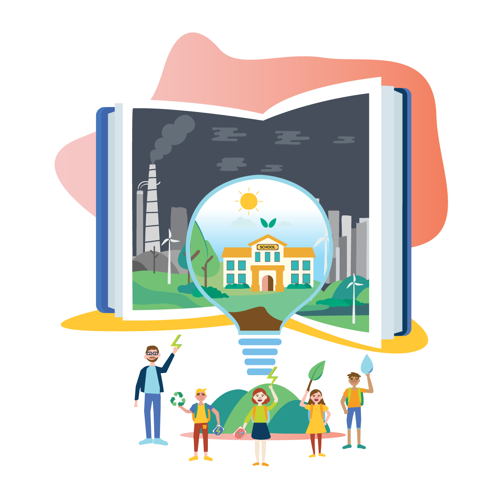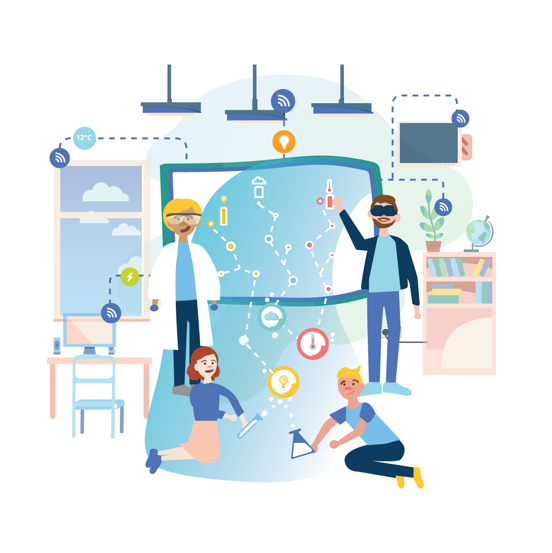Energe
With the ageing of the existing post-primary school building stock there is a need for low-cost solutions that enable long-term resource efficiency in schools and reduced greenhouse gas emission (GHG). Building energy directives and climate actions to 2020 – 2030 by the European Union underpin this necessity. ENERGE addresses this need using targeted physical interventions that combine a data-enabled platform and building sensors with behavioural and social studies as well as new educational approaches that enable schools engage in energy and GHG mitigation.
Secondary school buildings and their members, school teachers, school students, and administration staff are the focus of attention to understand and influence the socio-technical profile of secondary schools with regards to the management of energy consumption and comfort.
The ENERGE project is a holistic multidisciplinary effort that combines social, educational, design and engineering sciences: sociological, pedagogic and communications expertise, and low cost technology, ICT interventions and systems engineering. The project’s results will be demonstrated in schools in France, Germany, Luxembourg, Ireland, the Netherlands and the UK. ENERGE aims to achieve a minimum 15% reduction in total energy consumption at 12 demonstration site schools over the project period by implementing a series of technical, social and design activities. The collaboration aims to conjointly developed efficient and effective energy-saving strategies by means of low-cost interventions. The project will engage and enable management, teachers, students and maintenance staff to reduce energy consumption by developing a new data-enabled platform tailored to different stakeholder within the school ecosystem.
Socio-technical data is considered a relevant source to gain understanding and agency in the development, implementation, and assessment of energy-saving strategies and interventions. Technical data will be collected by means of energy meters and indoor climate sensors. Social data will be collected by means of self-reporting and digital ethnography involving school members. Real-time data visualizations will be iteratively co-designed with school members and make accessible to schools.
Natalia Romero Herrera
- 0657185769
- +31 (0)15 27 85507
- n.a.romero@tudelft.nl
-
Room B-2-280 StudioDream
"Memories are shaped by what we experience… Experiences are shaped by what we memorized…"
Abhigyan Singh
- +31 (0)628813433
- a.singh@tudelft.nl
-
B-2-140 (Studio Mingle)
Present on: Mon-Tue-Wed-Thu-Fri
"The 'global north' and 'global south' are idioms that blind us from the fact that there are 'norths' in the south and there are 'souths' in the north."
David Keyson
- +31 (0)15 27 83374
- D.V.Keyson@tudelft.nl
-
Room C-3-120
Stella Boess
- +31 (0)15 27 83196
- S.U.Boess@tudelft.nl
-
Room B-2-140 StudioMingle
René van Egmond
- +31 (0)15 27 88324
- R.vanEgmond@tudelft.nl
-
Room C-2-290
Present on: Mon-Tue-Wed-Thu
"Understanding the experience of product sounds leads to gratifying the human ear."



